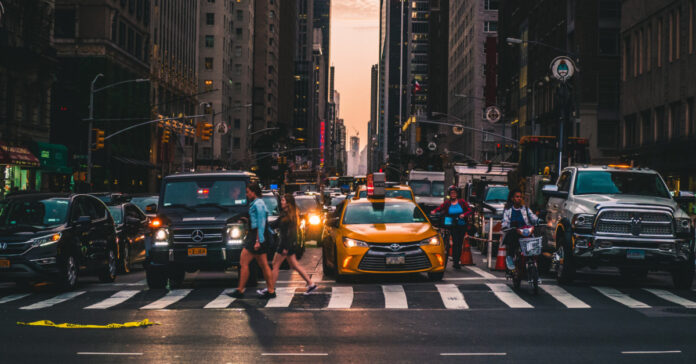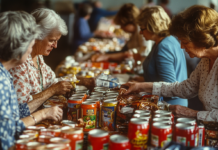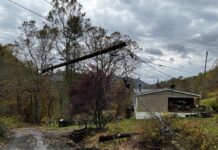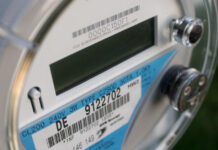My daughter, who lives in a mid-sized city, was complaining about the recent increase in traffic and how it is making her commute longer. (Since she works in healthcare, she has been back at work for months. And yes, she caught COVID-19 but recovered quickly, probably thanks to being young.) Apparently, people are going back to the office after the COVID-19 restrictions were lifted and the highways are getting crowded again.
A friend in our old home town confirmed that traffic is “back to normal” or perhaps worse. Construction is also going on at a rapid pace, possibly because the area is one where people from large cities are moving to escape. I’m not sure moving from an apartment in a large city to a townhouse or condo in a mid-sized city is that big an escape, but it took me multiple steps to get from New York City to the country, so you have to start somewhere. That’s why we call it your prepping journey.
It will be interesting to see if the re-opening of American and the thought of facing crowds again drives more people out of cities.
You may recall photos of midtown Manhattan with empty streets, no cars, and no pedestrians at the peak of the COVID crisis. I understand that is no longer the case. Whether or not COVID-19 is getting worse again, whether or not governors re opening states or closing them down, people have had enough and are returning to some of their pre-COVID habits. Shopping, driving, walking outside, and eating out seem to be among them.
Travel is also picking up. Before you know it, airports will be crowded again. Rush hour will be back. You might even have to wait in line to go to a restaurant again.
Urban Crime vs Rural Crime
And then crime will rise. Oh wait, crime already rose. In fact, it continues to rise in big cities. After murders increased by 30 percent across major cities last year, they are up 18 percent in the first quarter of 2021. You can blame COVID-19, but I blame the defund the police movement.
Not only is there less crime out here, or perhaps lessor crime is a better way to look at it, there are no homeless encampments along the railroad tracks, no panhandling downtown, or defecating on the streets. Sure, there’s poverty; in fact, this is a poor county, but people seem to have roof over their head. No one here is losing their home because an influx of techies is driving up the property values and the rents.
I recently read that 83 percent of the population lives in urban areas. I don’t know whether to be sad for them or just feel lucky I am no longer among their numbers. If we spread that 83 percent evenly over the entire country, then there would be no rural area to which we could escape.
Urban Prepping
For all you urban preppers, my hat is off to you. The city is a tough place to prep and would be a tough place to survive after a global disaster. Especially when the gang members and criminals are no longer held in check by the thin blue line. It would hit the cities in the north the worst when cold weather comes, and I expect disease in urban areas will run rampant because of a lack of water and sewer. Third world cities have a higher level of disease because of the filth, and that’s what any kind of SHTF event that kills the utilities will render any city in the U.S.: a filth-ridden city with death and disease on every corner.
I expect urban preppers will only be able to survive a large-scale calamity by hiding out in a small, secret location or by bugging out before things get bad. So keep stashing food under your bed and in your closets. Make sure your gas tank doesn’t drop below half full if you plan to bug out. Keep the gear in your bugout bags up to date. Plan now with friends or family to take you in. Because surviving a SHTF disaster will not be easy and doing so in a city is going to be harder than surviving anywhere else.
News Updates
- I recently wrote about inflation and its impact on houses, including one that had 122 offers. Here’s a story that covers a house that received 76 cash offers. It also provides more data on how housing prices have risen in the past year.
- As we have mentioned multiple times, Europe continues to struggle with its COVID-19 vaccinations and is looking at more shutdowns.
- Were you in the “I don’t trust the vaccine” camp and now find yourself thinking that maybe it wouldn’t be such a bad thing after all? If so, you are not alone as the Wall Street Journal reports that the number of people declining the vaccine is falling across a range of demographics.
- Russia and China are sending multiple flights of bombers and other military aircraft to probe boarders and international airspace. These aggressive measures are seen as threats and reminders, especially when China sent up to 20 aircraft in a “pincer” movement around Taiwan. The subjects of these attacks often scramble fighter jets in response or paint the aircraft with ground-based radar and activate anti-aircraft missiles. The danger here is that an itchy trigger finger or a pilot that ignores the call to turn back could start an “international incident” that could spiral out of control and turn into a war. This is inline with the post we made last week about moving closer to war.
- Also along those lines, this article reports that the U.S. military’s European Command has raised the threat level to that of “potential imminent crisis” because of tension between Ukraine and Russia and the deployment of more Russian troops to the region. Meanwhile, this article wonders if Biden’s action in Ukraine might give rise to World War Three.
- Here’s a shortage that you might not expect: Just as an uptick in new gun owners last year is said to be partially responsible for the great ammo shortage, canned cat food is in short supply due in part to an increase of people adopting cats while they were home-bound because of COVID-19. The article blames factories closing because of COVID-19 as well.
The cat food shortage is affecting us as my wife has a hard time finding the very specific flavors of food our cat will eat. She jokingly suggested the cat food was stuck in containers in the Suez Canal. Sounds like we would be better off it that was indeed the case.








